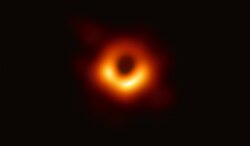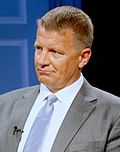Is Wikipedia just another social media site?
Most Wikipedians are proud of their creation – a huge, up-to-date, good quality encyclopedia that may last for the ages. Our encyclopedia is certainly not a social media site. But let's see what the rest of the media say.
A kind of social network?
"Wikipedia Isn't Officially a Social Network. But the Harassment Can Get Ugly" writes Julia Jacobs in the New York Times.
[Wikipedia] is a kind of social network where users debate the minutiae of history and modern life, climb the editorial hierarchy and even meet friends and romantic partners. ...
It is also a place where editors can experience relentless harassment.
The focus of the article is on harassment of transgender and women editors.
Jacobs reports that trans male editor Pax Ahimsa Gethen suffered personal attacks for several months in 2016. Gethen's anonymous harasser called them "insufferable" and "unloved" adding that they belonged in an internment camp and should kill themself. Other examples are given about LGBT and women editors on French and Persian Wikipedia.
Harassment reports on Wikipedia are handled mostly by unpaid volunteers on Wikipedia, unlike similar reports on Facebook and Twitter. On English Wikipedia, complaints are often handled publicly, which can result in undesirable confrontations.
Katie Bouman and the power of social networks
Katie Bouman became famous soon after a photo of her was tweeted as she watched the very first image of a black hole being processed, an image she helped create. The Wikipedia article on Bouman was created a few hours later by Wikipedian Jess Wade.
- Writing in a Washington Post op-ed "It matters who we champion in science", Wade and her co-author Maryam Zaringhalam explained the origin and importance of Bouman's fame as part of a social network that will help inspire future women scientists.
This week, millions of girls and women around the world who have been told science is not for them found a new role model in Bouman — a new data point that told them yes you can.
- In Slate's "How Katie Bouman Shook Wikipedia" Stephen Harrison writes about those who tried to delete the article, and how the article survived the attempted deletion.
- In The Atlantic, "The Dark Saga of Katie Bouman" follows the ups and downs of the internet battle over Bouman's depiction and compares the Wikipedia article on Bouman to that of Nobel laureate Donna Strickland.
The internet in the Mueller Report
The redacted Mueller Report, released April 18, has a strong focus on the internet and social media. The Internet Research Agency (IRA), which Mueller indicted, was mentioned over 100 times. WikiLeaks was mentioned over 200 times, Facebook and Twitter were mentioned several dozen times each. Wikipedia was mentioned only twice as part of a fairly bizarre, perhaps trivial, affair.
According to the report (see Vol. I, pages 147–158, especially pp. 151–155), after the 2016 U.S. presidential election Russian President Vladimir Putin tried to establish unofficial "back-channel" communications with Trump. A connection was attempted through the following series of links:
Dmitriev, who reports directly to Putin during his day job as an investment banker, asked Nader, a Mideast go-between, to contact somebody in the Trump entourage. Nader convinced Prince to meet with Dmitriev on January 3–4, 2017, in part by sending Prince the link to Dmitriev's Wikipedia article. Prince then talked with Bannon, showing him a screen-shot of Dmitriev's Wikipedia article. Bannon does not remember this meeting with Prince, and this back-channel communication seems to have ended there.
But, why did Nader send Prince a link to Wikipedia? And why did Prince show Bannon a screenshot of the Wikipedia article on Dmitriev? Why not just send a resume?
Other social media connections
- What do J. S. Bach and Mötley Crüe have in common?: Answer – spikes in Wikipedia page views and inclusion on Billboard's Social 50 chart which ranks entertainers based on their popularity on Facebook, Twitter, YouTube, Tumblr and Wikipedia.
- Used by YouTube: Bloomberg News reports how YouTube executives ignored warnings, letting toxic videos run rampant before sloughing off much of the responsibility for screening videos onto Wikipedians.
So perhaps we might conclude the Wikipedia is not so different from social media sites, sharing both the ability to change social perceptions and problems like harassment.
In the comments section below please let us know how you answer the question "Is Wikipedia just another social media site?"
In brief
- In Akan it says ... : Translating Wikipedia into Akan in Ghana
- In Irish it means ... : "The Irish-language version of Wikipedia is going strong" by Darach Ó Séaghdha, author of Motherfoclóir, an irreverent Irish dictionary. (What did you think it meant?)
- Systemic bias covering recent years: "The Four Eras of Wikipedia and Visualizing History Without Maps" in Forbes raises awareness of Wikipedia's bias against one of the most under-served classes of article subjects: people from past centuries. The article describes a tipping point after which Wikipedia's coverage of contemporary issues achieved a high level of quality, and thereafter editors began to fill in temporal and geographic gaps.
- Doxxing senators on Wikipedia: "Former Senate staffer admits to doxxing five senators on Wikipedia" in The Verge. Sophos' Naked Security describes how the Wikipedia vandal, who also broke into congressional offices and computers, will likely receive a jail sentence in a plea agreement.
- Beauty is in the eye of the beholder: "'A strong campaigner': the beauty of Wikipedia" an Australian politician explains "the beauty of Wikipedia" is how her staff can update her page with her intended messages for the public.
- Better democracy?: "Want to know how to build a better democracy? Ask Wikipedia" by Wikipedia beat reporter Noam Cohen in Wired analyzes Wikipedia's response to declared paid editors on Wikipedia.
- What does a Wikipedian in residence do all day?: Long-time WiR Mary Mark Ockerbloom who works with the Science History Institute explains.
Gobbler of the month

awarded to
Everipedia
April 2019
Everipedia, which claims to be the "world's largest online English encyclopedia" posted a press release on why they are better than Wikipedia. Everipedia's 6 million plus articles include about 5.5 million old Wikipedia articles. Searching for "main page" on Everipedia will take you to a page titled "Everipedia, the encyclopedia of everything" with the text starting "Welcome to Wikipedia, the free encyclopedia that anyone can edit. 5,532,166 articles in English" followed by the rest of Wikipedia's Main Page from December 16, 2017.
The press release immediately invites skepticism by stating that "a third of (Wikipedia's) content is created by just one man", apparently referring to Steven Pruitt. Pruitt has made over 3 million total edits on Wikipedia and edited more than 1 million of the nearly 6 million English-language articles, but has not contributed all of the content to those articles.
The core of the press release is based on a survey of 1,000 Americans. Neither the methodology or a full set of results are given. Decrypt reports that the survey is informal and "not an academic, peer-reviewed report or study", quoting an Everipedia spokeswoman.
Everipedia reports 13 survey results, including:
- A majority of Wikipedia "users" have never edited an article. They apparently mean that a majority of Wikipedia readers have never edited an article.
- 75 percent of respondents said they'd be more likely to contribute to Wikipedia if they were paid.
The only unexpected survey results, in the eyes of this reviewer, is that the results conform completely with information that is already widely available or at least suspected. In a survey with this many questions at least a few unexpected results are to be expected.
Everipedia's response to the reported problems involves paying their editors with their own cryptocurrency called "IQ", a type of electronic wooden nickel.
David Gerard, Wikipedia's own expert on all things about cryptocurrency, remarks that there are "real problems with Wikipedia" that the survey notes "and we're very aware of them. But that doesn't mean Everipedia's paid-editing model solves a single one of them, and they've given no evidence that it does."
The Signpost's request for further information about the survey has not been answered.









Discuss this story